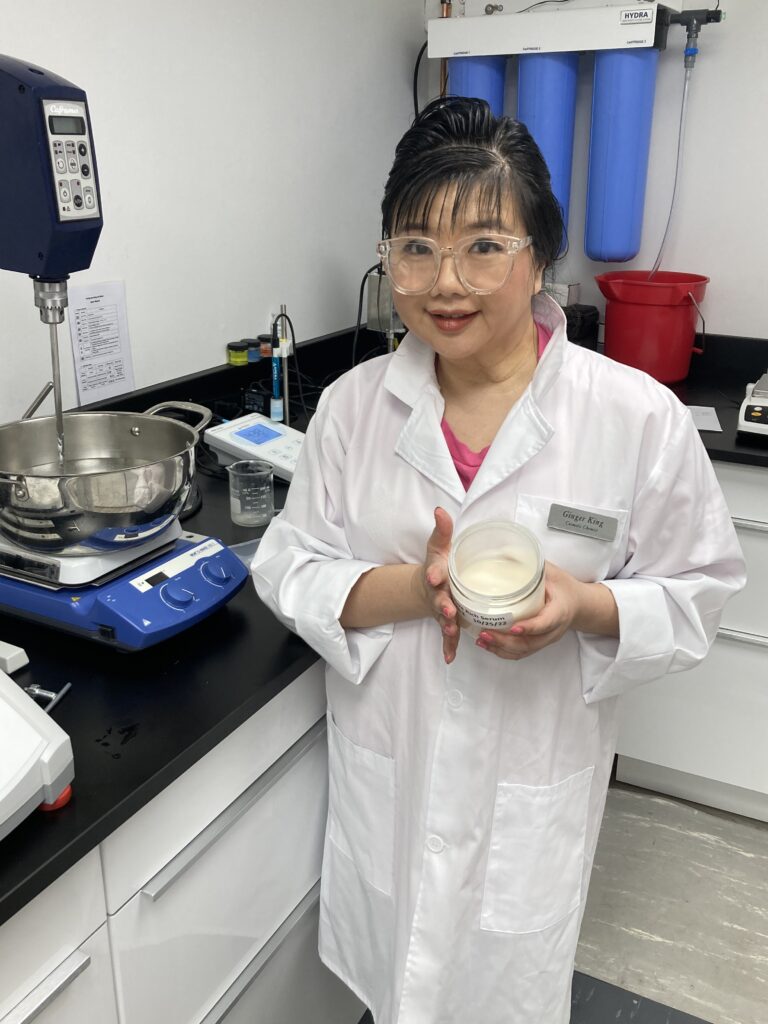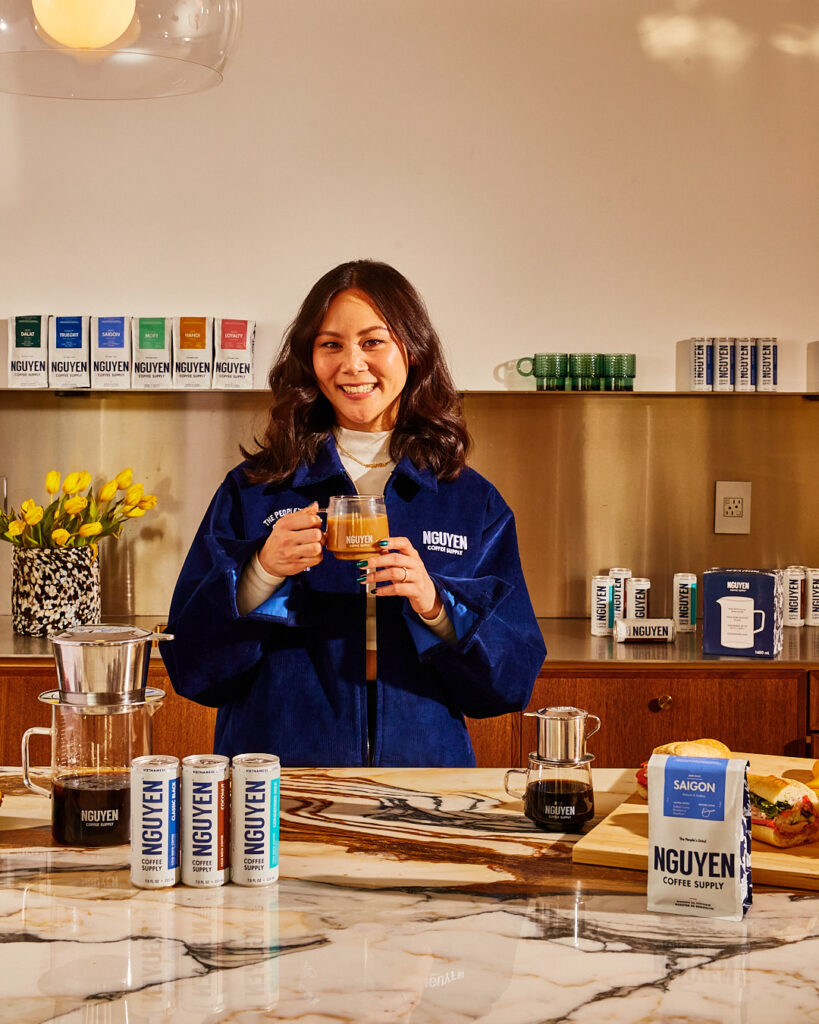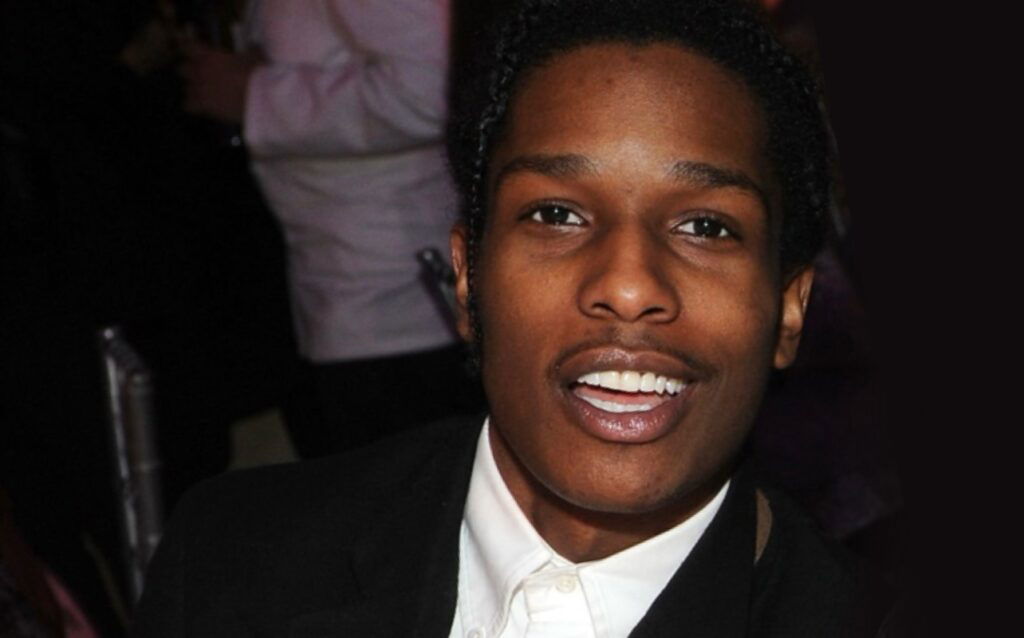More than 3 million businesses in the United States are owned by members of the Asian American and Pacific Islander (AAPI) community. But entrepreneurs of Asian descent, particularly women, face more barriers than those who aren’t part of minority communities. Those challenges include lack of funding and support and a rise in xenophobia since the onset of the pandemic. Many Asian American, Native Hawaiian and Pacific Islander (AANHPI) women have overcome myriad obstacles to establish successful businesses—all while staying true to their cultural heritage. Meet three changemakers making waves in the food, beverage and beauty industries.
Mika Shino, Founder/CEO, Issei

Photo courtesy of Mika Shino
When Mika Shino discovered that her kids’ favorite gummy candies were made from many undesirable ingredients, she took matters into her own kitchen. The music producer, cookbook author and former UNESCO program specialist was eager to craft non-GMO sweets without animal-derived gelatin and artificial preservatives, colors and flavors. The result was Issei Mochi Gummies, which debuted at Whole Foods Market in 2022. But the super soft, gently sweet confections—enriched with real fruit—are more than just delicious.
“I created this as an ode to all immigrants and what we bring to this country and what we bring to the table, because, so often, our heritage is not as highlighted as the European tradition,” says Shino, who was born in Kyoto, Japan, and grew up in the United States. “So, especially in the food sector, especially when you look in the aisles of the supermarket, we’re not represented.”
Shino gained inspiration for her gummies from mochi, a confection that she grew up eating. Traditionally produced with pounded rice and water, the Japanese treats are beloved for their simplicity. Her company’s name, Issei, is a Japanese term for first-generation Japanese immigrants who moved to America. “The mission of our brand is to uplift all immigrant cultures and heritage. We started out with this one product, mochi gummies, but [they’re] a blank canvas for flavors from all over the world.”
In addition to offering gummies in well-recognized candy aisle flavors such as vanilla, strawberry, mango, sour watermelon and peach, Shino also hopes to introduce American palates to less ubiquitous ones from Asia, the Middle East and beyond as her brand evolves. Since launching in 2022, Issei Mochi Gummies has expanded to more than 2,000 stores on the West and East coasts and Hawaii. Shino, who had never worked in the food sector until two years ago, now has products in Albertsons, Sprouts Farmers Market and Walmart. While the grocery store deals bring her joy, the impact Shino hopes to make on future generations is the sweetest victory.
“I think just by the sheer fact of existing, we’re kind of showing that there can be diversity [in the candy aisle] and showing other Asian kids [that], ‘Wow, there’s stuff that’s not just European that’s just as valid,’” she says.
Ginger King, Founder/President, Grace Kingdom Beauty

Photo courtesy of Ginger King
Ginger King is a self-proclaimed “beauty shark,” and her long career and robust resume are proof that her obsession with cosmetics is worthwhile. King, the founder of Grace Kingdom Beauty, uses her master’s degrees in natural product chemistry and marketing to help entrepreneurs develop and brand makeup, skin care and other beauty products. Over the past three decades, she’s created or consulted on more than 30 brands and 2,000 formulas, including projects for big-name companies such as Avon, Joico and Origins.
King’s infatuation with the power of makeup to boost confidence and change perceptions started at a young age. “I always tell people I was born in beauty because my mom was the first woman to bring the Shiseido boutique from Japan to Taiwan in the ’60s, so I grew up under the influence without realizing that’s going to be my destination,” she says. While King grew up around cosmetics, she wasn’t allowed to wear makeup as a student in her native Taiwan but started applying it when she moved to the United States at age 16. That’s when reading Estée Lauder’s biography fueled her dreams of a career in beauty. However, like a lot of AANHPI individuals, King felt pressured by her parents to pursue a more prestigious path in science. “I wanted to become a makeup artist,” King says. “But, being Asian, it’s expected that you either get a Ph.D. or at least a master’s degree.”
King’s roles in the beauty world have been diverse. They include serving as a chemist for Dole (where she correlated the pink disease in pineapples to an active ingredient in many self-tanners); working in retail for brands such as Chanel, Clarins and Bobbi Brown; becoming a men’s fragrance specialist—and starting her own product development company, Grace Kingdom Beauty, more than 11 years ago. She’s also now involved with Shark Tank, a show she has long admired, as a #PowerOfBroke ambassador for Daymond John.
Adapting to pursue a passion—which is what King did to meet the cultural and familial standards she faced at the start of her journey—is something she hopes other entrepreneurs can do. “I pivoted to creating beauty products instead of applying beauty products,” she says. “You need to keep your vision, but you need to be adaptable. And you may be surprised what else you can do even greater.”
Sahra Nguyen, Founder/CEO, Nguyen Coffee Supply

Photo by Maria Be
If your favorite local java stop has a rendition of Vietnamese coffee, that might be due to the efforts of a first-generation Vietnamese American. In fact, Sahra Nguyen, who founded Nguyen Coffee Supply in Brooklyn, New York, in 2018, is often celebrated as the leader of the Vietnamese coffee movement in North America.
The traditional version of the caffeinated drink, often crafted with a phin (a small metal filter) and served with condensed milk, is made with highly caffeinated yet flavorful robusta beans farmed mostly in Vietnam. However, until recent years, the robusta bean has been inaccurately perceived as inferior to the widely recognized arabica. And while Vietnam is the second-largest coffee producer in the world, the country is often left out of craft coffee conversations dominated by other bean-growing destinations such as Columbia and Brazil.
“There was a real disconnect with how we were applying value to the [coffee] industry,” Nguyen says. “If you really care about the value, like acknowledging the source of the beans and the truth behind the beans, why was that not given to folks from Asia?”
Those questions and disconnects led Nguyen, who was a freelance writer and filmmaker at the time, on a journey to found Nguyen Coffee Supply. In 2016, she connected with her first coffee supplier in Vietnam and began using her backgrounds in social justice and media to tell the story of the misrepresented robusta bean. “There are companies in the U.S. [and] in Europe who had been using robusta coffee in their products for years, but they would market it under a different slogan,” Nguyen says, citing examples like “the strongest coffee” or “Italian espresso.”
Nguyen Coffee Supply’s products, which feature robusta and arabica beans that are grown and handpicked in Vietnam and roasted in Brooklyn, have made an eye-opening impact on coffee drinkers. Since 2018, the company’s robusta sales have grown more than about 50% over arabica and the costs of robusta have increased about 275%—developments that have allowed Nguyen Coffee Supply and its sources to expand. (For example, the grower Nguyen works with in Vietnam purchased a second farm.)
Nguyen also launched a canned coffee line that’s now available at Whole Foods Market and Sprouts Farmers Market stores. She attributes the progress to consumers’ willingness to pay just as much for the robusta bean as its arabica counterpart—and become interested in the coffee culture of her family’s native land. Some fans even enjoy their daily brew using a phin. “We were adamant about sharing the phin because we want to just share the culture, so when people think about culture, then the conversation expands to the people,” she says.
Photo courtesy of Sahra Nguyen




